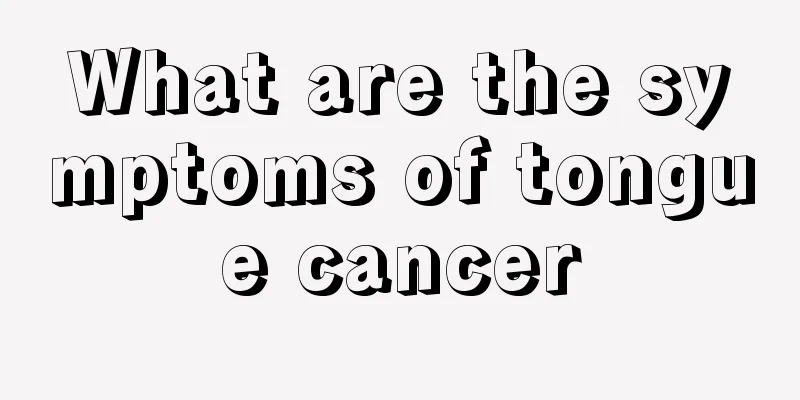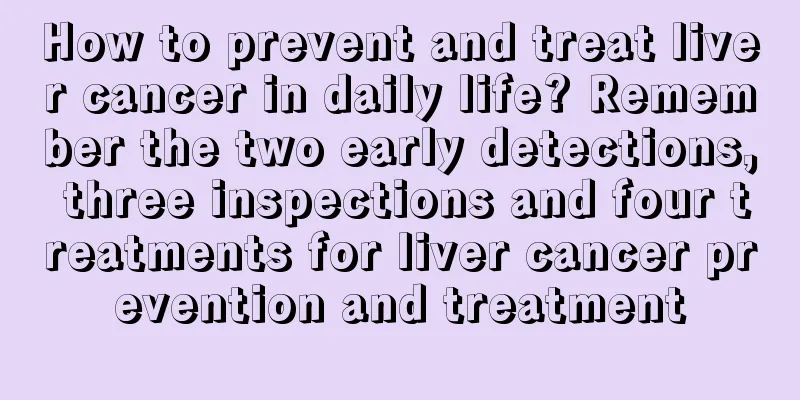What are the symptoms of tongue cancer

|
What are the symptoms of tongue cancer? When it comes to tongue cancer, many people may not have heard of it. In fact, tongue cancer is not uncommon. It is one of the common oral cancers. It develops very quickly and often catches patients off guard. Because they do not understand the symptoms of tongue cancer, they miss the best time to treat the disease. So, what are the symptoms of tongue cancer? 1. Early symptoms of tongue cancer Increased saliva secretion in the mouth, a sense of heaviness when swallowing, lumps and lymphadenopathy in the maxillofacial area, unexplained bleeding in the mouth and difficulty opening the mouth. Oral mucosa has long-term oral ulcers, which are recurrent and dull, pale, and abrupt. Erythema, edema, erosion, etc. appear in the mouth. Although there is no obvious pain or discomfort, if it does not heal for a long time, it needs timely diagnosis and treatment. 2. Symptoms of advanced tongue cancer If tongue cancer is not taken seriously and treated in the early stages, the cancer cells will gradually develop and invade other tissues and organs, turning into advanced tongue cancer. Advanced tongue cancer can often involve the floor of the mouth, mandible, palatoglossal arch and tonsils. Local ulcers or infiltration develop rapidly, causing pain, tongue numbness and swallowing difficulties. Chronic irritants, neck swelling or lymph nodes can be found near the tumor. Tongue cancer usually occurs at the edge of the tongue, followed by the tip, back and belly of the tongue. There may be a history of local leukoplakia or chronic irritation. It is often ulcerative or infiltrative, grows fast, is painful, and has strong infiltration. There may be limited tongue movement, difficulty eating and swallowing, and cervical lymph node metastasis in the early stage. Once the patient is found, he should actively go to the hospital for examination and treatment. At present, the treatment of tongue cancer is mainly comprehensive treatment with surgery as the main method. Generally, the primary lesion should be removed and the neck lymph nodes should be cleared, and radiotherapy or chemotherapy should be combined before or after surgery. To prevent the occurrence of tongue cancer, we should reduce external stimuli in our daily life, actively treat precancerous lesions, and improve the body's resistance to disease. |
>>: How to avoid bile duct cancer
Recommend
How to effectively remove acne
It is really painful to have pimples on your face...
What to do if the house is damp and musty
The weather is quite hot now, and there are many ...
Brief discussion! What are the early symptoms of laryngeal cancer?
In recent years, laryngeal cancer has become a ma...
How to get through the low period of life?
① Wait quietly; ②Sleep well; ③ Exercise, a good p...
What is the best treatment for liver cancer? Summary of other treatments for liver cancer
In fact, there is not only one treatment for live...
Can freckles be completely eradicated?
People's skin is not always a solid color, bu...
What should I do if my new shoes rub my feet?
New shoes that have just been bought are very eas...
The difference between conjunctivitis and pink eye, you need to know these common sense
Conjunctivitis and pink eye are both common eye d...
Dry mouth and stomach discomfort
It is difficult to encounter any disease symptoms...
What is the most effective way to treat oral ulcers?
Many diseases are caused by irregular lifestyle a...
What are the early symptoms of cervical cancer
Cervical cancer may not have obvious symptoms in ...
What's wrong with anal itching at night? Be careful of these reasons
Anal itching generally refers to local itching of...
What are the benefits of taking a bath with roses
In movies and TV dramas, we often see beautiful w...
How to effectively nourish the stomach when it is cold
Of course, people with cold stomach should focus ...
How to take better care of liver cancer? 4 good ways to actively prevent liver cancer
Liver cancer is also one of the more common cance...









